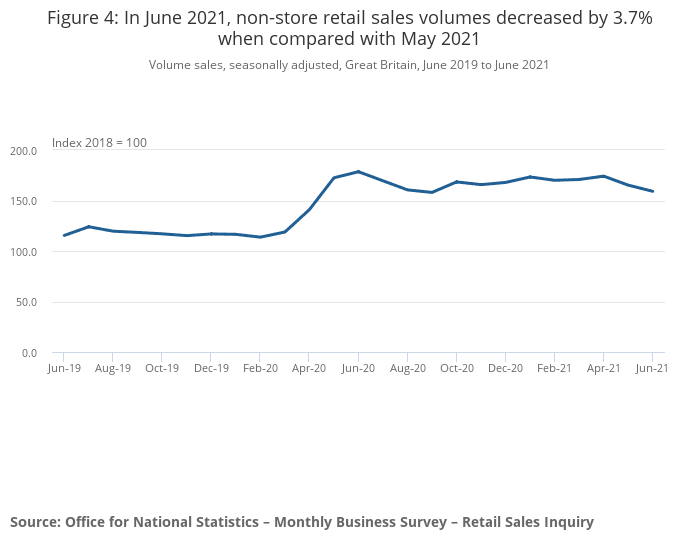Why UK retailers should embrace selling online
 On 9 January 2014, Morrisons reported a 5.6% drop in sales (source: The Sunday Times; Morrisons). One of the things they blamed for this dramatic fall in sales was the “lack of an online shopping service”. No ecommerce website.
On 9 January 2014, Morrisons reported a 5.6% drop in sales (source: The Sunday Times; Morrisons). One of the things they blamed for this dramatic fall in sales was the “lack of an online shopping service”. No ecommerce website.
Astonishing.
Astonishing that after the success of Tesco’s own ecommerce site launched some 14 years ago, Morrisons has finally worked out they need a strategy that includes taking sales online. Perhaps they have ignored the performance of online sales over the past 14 years? Perhaps they never remembered that demand on the Tesco’s online store was overwhelmed the first Christmas for the online store?
What were the Board of Directors of Morrisons thinking?
Did they think that the trends fuelling ecommerce would suddenly go into reverse?
In the first quarter of 2014, we will be be paying close attention to and reporting on UK ecommerce Christmas results. So far, the statistics are not dissimilar to last year. In 2012 John Lewis saw a 40% increase in online sales. And in 2013 their online sales for the 5 week Christmas period were up 22.6% on the previous year. (source: Econsultancy).
Alongside the news about Morrisons, was an update regarding Asos – a prediction that Asos’ sales would soar by 35% over Christmas. Tuesday, they published their results: sales were up by 38% in the 4 months to the end of 2013. Stellar results by any standard
“Online sales rose by 19.2% across the sector last month, the highest growth in 4 years, amid a fall in visitor numbers to stores and flat overall retail sales” (source: The Times; The British Retail Consortium)
UK SME Retailers
The High Street is being cannibalised and stores are closing left, right and center. To make up for this, independent retailers should be embracing the power of the internet in order to increase their sales.
Since 2002 – the year I started Xanthos – I have been surprised by the reluctance of some businesses to understand the power of the internet and the inevitable trend toward taking business online within their particular market places. Aside from the aforementioned results from the large retailers, there are significant trends that point to ‘ecommerce’ being the way forward.
Over the years I have heard a number of comments about what would and wouldn’t sell online, have a chuckle:
• “No one will buy books online”. Amazon is now a household name and considered the giant of ecommerce. But, how many remember Amazon in 2000? In their first year of trading, Amazon took 35% of Barnes and Nobles’ market share.
• “No one will buy food online”. Tesco and Ocado lead the way with others following (well apart from Morrisons who waited 14 years!)
• “No one will buy jewellery online”. Blue Nile set up to sell diamond jewellery online, and before the financial crash in 2008, they were selling diamonds at the rate of 1 in every 2 minutes in the USA. Closer to home, witness the success of Cool Diamonds who were able to leverage their brand and tap into the fact that most men would rather not shop for a diamond in a store!
• “No one will buy clothes online”. Sounds stupid now, but many people thought that the act of trying clothes on was a crucial step in the buying process and that not being able to try clothes on before you buy would create angst that would prevent customers buying online. Actually, this was found to be untrue. A combination of distance selling regulations in the UK and some forward-thinking businesses, have meant that this angst has been removed from the consumer. Since then online fashion retailers have gone from strength to strength.
Still not convinced? For more in-depth information, download our whitepaper – 6 trends that show ecommerce is the way forward.







